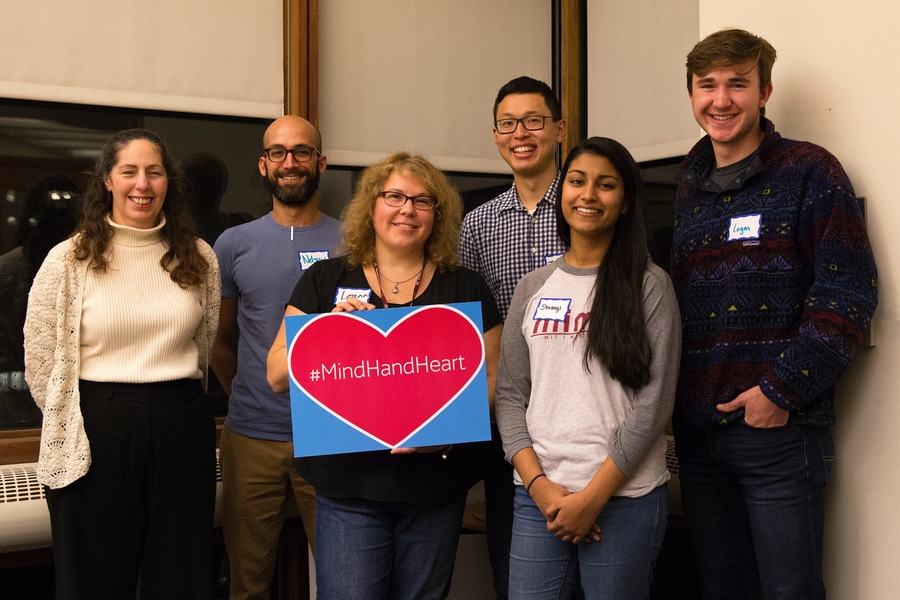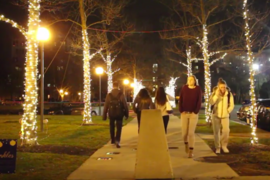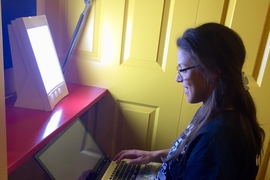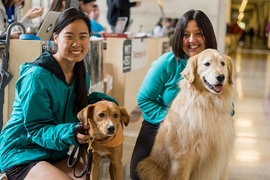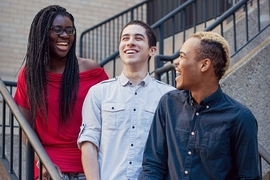Projects to increase students’ sense of academic belonging, create an Emergency Services Fair, and build terrariums are coming to the MIT campus, courtesy of the newest MindHandHeart Innovation Fund winners. Designed to support grassroots efforts powered by students, faculty, and staff, the Innovation Fund has awarded nearly $100,000 to make MIT a more welcoming, supportive, and better connected place.
The fund is one of the flagship programs of MindHandHeart, an initiative sponsored by Chancellor Cynthia Barnhart and MIT Medical to increase awareness about mental health, reduce stress, and promote life and wellness skills. Applications were reviewed by MindHandHeart’s working group co-chairs and members as well as a selection committee comprised of representatives from the Undergraduate Association and Graduate Student Council.
Past winners include: MIT Connect, a digital platform pairing like-minded members of the MIT community for platonic, one-on-one lunches; Random Acts of Kindness Week, an event series bringing people together through spontaneous acts of goodwill and zany antics; Removing SAD from Winter, the installation of light therapy lamps in accessible spaces on campus to combat seasonal affective disorder (SAD); and Puppy Lab, a student-led program offering friendly canine company to help students de-stress.
The seven Innovation Fund projects awarded this fall received a total of $21,450 and were drawn from 24 applications. “It was truly inspiring to read through the proposals and see the range of creative approaches to advancing wellness,” says Maryanne Kirkbride, clinical director of student life and executive administrator of MindHandHeart. “This is the fourth round of the Innovation Fund, and I continue to be moved by how our community is driven to help others and make a ‘better world’ right here at MIT.”
One of the new Innovation Fund winners is “YOU Belong @ MIT,” a three-part awareness and training program developed by the Teaching and Learning Lab to increase students’ sense of academic belonging. MindHandHeart is funding the first phase of the project, consisting of a seminar hosted by an expert in the field of academic belonging and a journal club where seminar participants can further explore the topic. Janet Rankin, interim director of the Teaching and Learning Lab, writes in her application, “At MIT, we want students to thrive in all aspects of their lives. Increasing a student’s sense of belonging may help to support their mental health and may also contribute to their overall academic success.”
Another upcoming project is the “Emergency Medical Services (EMS) Community Fair.” Championed by Shivangi Goel, an MIT senior and member of the MIT-EMS leadership team, the fair aims to foster dialogue and positive interactions between the MIT student body and the MIT Police Department, Emergency Medical Services, and other local response agencies. Goel writes, “The goal of the event is to have a fun day that results in people of our community feeling more comfortable and confident in requesting emergency help, making our community a happier and safer place.”
Another student-led project, “Campus Preview Weekend (CPW) Athletics Alternative Programming,” is designed to improve the CPW experience of prospective student athletes. Recruits will participate in a series of icebreaker activities and a scavenger hunt. The event will serve as a fun and active alternative to informal parties, while providing students with an opportunity to connect outside their varsity teams.
Other projects funded this cycle include: “Culinarily Cultivating Community,” a series of cooking lessons and community events based in Edgerton House; “Food, Film, and Friends,” a film series incorporating guided discussion on controversial topics explored in each movie; “Plants for the People,” an event series bringing together green-thumbed MIT students to make terrariums in a fun, communal setting; and “Portraits of Resilience,” a book capturing MIT community members’ personal stories of overcoming adversity, curated by Professor Daniel Jackson.
MindHandHeart is accepting applications for the next funding cycle from March 1-31, 2017. Prospective applicants are encouraged to attend an information session on either March 13 or March 23. To learn more about how MIT faculty, students, and staff members can apply for grants of up to $10,000, visit the MindHandHeart Innovation Fund page.
For information on upcoming events organized by MindHandHeart Innovation Fund winners, visit: the MindHandHeart events calendar.
